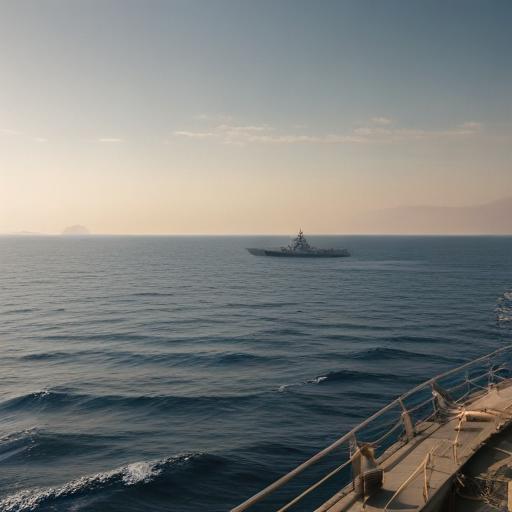Amid rising tensions following recent Israeli airstrikes on Iran, concerns are intensifying over the potential ramifications for the Strait of Hormuz, a crucial oil transit route that separates Iran from Oman and the United Arab Emirates. This narrow waterway is vital to global energy markets, with approximately 20 million barrels of oil and oil products passing through daily, which equates to around one-fifth of the world’s oil supply. Any attempt to disrupt this passage could have widespread consequences.
Despite the mounting fears, experts believe that a full-scale blockade of the Strait of Hormuz is improbable and may even be unfeasible. Ellen Wald, President of Transversal Consulting, emphasized that obstructing oil transit through the strait would offer “no net benefit” to Iran, especially since its oil infrastructure remains largely intact. Wald further indicated that such a move could provoke further retaliation, and a surge in oil prices could potentially lead to backlash from China, Iran’s primary oil importer and biggest trade partner. Given that China accounts for over 75% of Iran’s oil exports, the economic ramifications of a blockade would likely hurt Iran more than its adversaries.
Conversely, Anas Alhajji of Energy Outlook Advisors echoed this sentiment, noting that disrupting oil flows from the Persian Gulf could adversely affect Iran’s economy as well, since it relies heavily on goods that traverse this route. Moreover, the geographical layout of the Strait of Hormuz suggests that complete closure by Iranian forces is virtually impossible. Alhajji pointed out that the majority of the strait lies within Omani waters, which diminishes Iran’s capability to enforce a blockade.
Vivek Dhar from Commonwealth Bank added that any blockade would likely be a “last resort” in the event of military confrontation between the U.S. and Iran. Although some minor disruptions could occur, such as attacks on oil tankers, a complete shutdown of the strait would be very challenging given the presence of the U.S. Fifth Fleet nearby, as noted by Helima Croft of RBC Capital Markets.
In the historical context, threats to close the Strait of Hormuz have surfaced previously, particularly in 2018 and again in 2011, but have not materialized into action. The current geopolitical climate creates an atmosphere ripe for anxiety, yet the consensus among analysts reveals a degree of optimism that significant disruptions to global oil supply via this route can be avoided.
This complex situation underscores the interdependence of oil-importing nations and highlights the delicate balance of power in the region. While tensions remain high, the shared interests of major players like China and the strategic significance of the Strait of Hormuz could work as stabilizing factors in the unfolding narrative.
